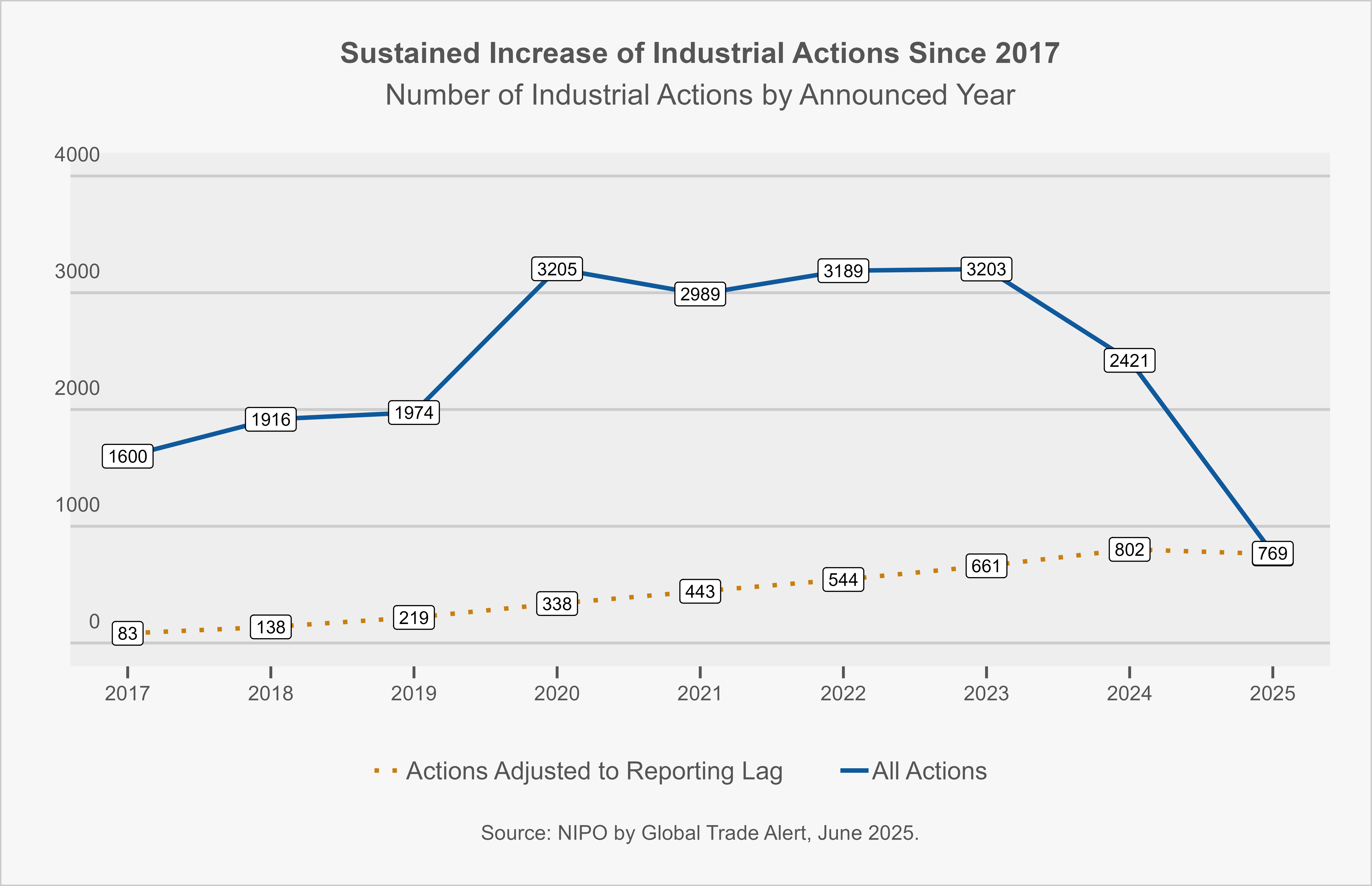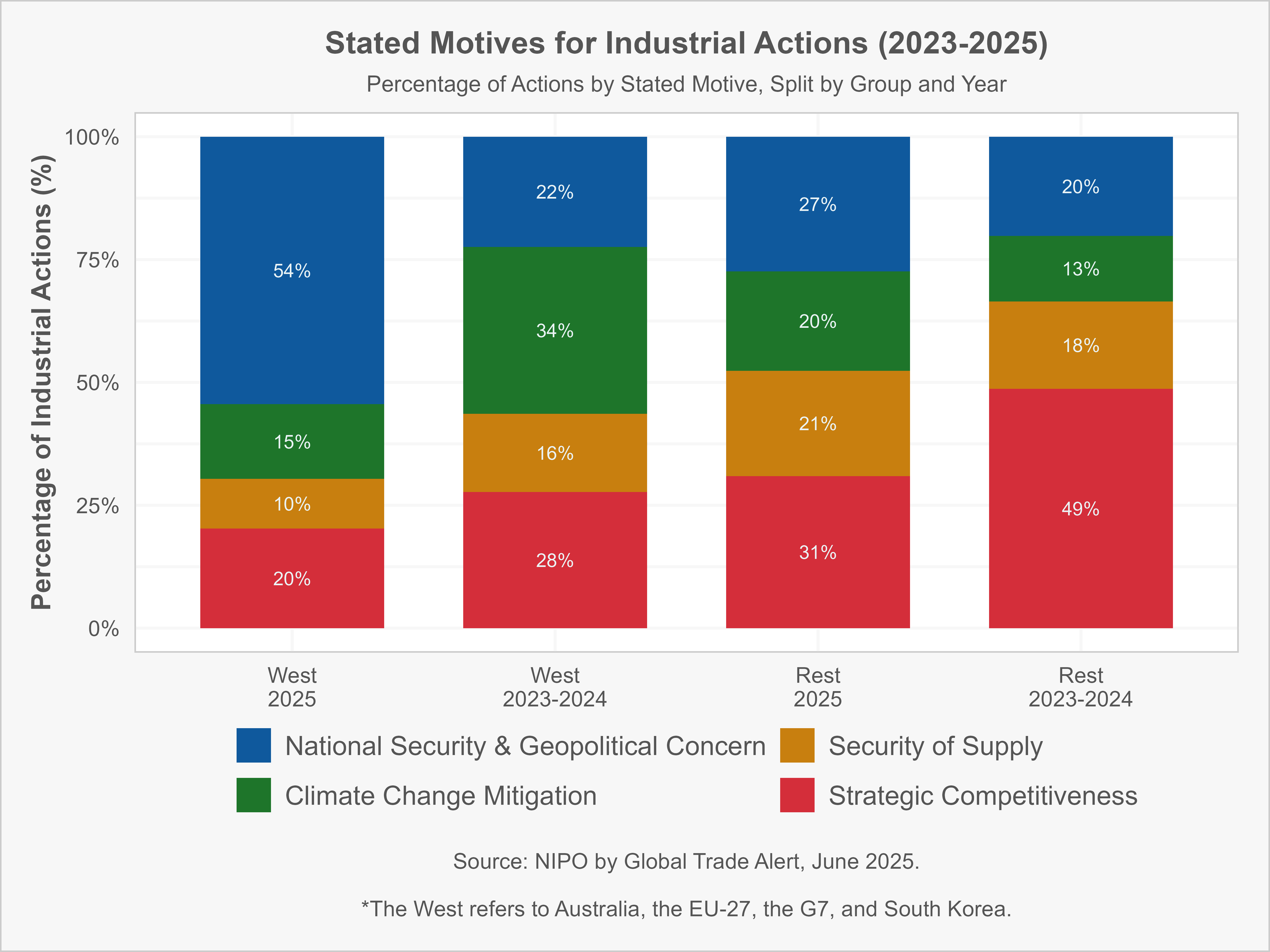Losing the Green Edge: Industrial Policy Shifts Amid Geopolitical Priorities
ZEITGEIST SERIES BRIEFING #67
ZEITGEIST SERIES BRIEFING #67

The June 2025 snapshot from the NIPO reveals a striking transformation in the global industrial policy landscape. While overall policy activity continues to grow, there has been a notable decline in measures targeting green technologies such as photovoltaic (PV) cells, wind turbines, hydrogen, and electric vehicles. As illustrated in Figure 1, green industrial initiatives peaked in 2023 but have since declined sharply. From January to June 2025, only 34 green-focused measures were recorded—almost half the 62 recorded during the same period in 2024.

This downturn in green industrial measures does not reflect a general slowdown. Total industrial policy activity continues to be sustained across sectors with 763 measures announced from January to June in 2025 compared to 802 during the same period in 2024.
The shift is particularly evident in Western economies, where the momentum behind climate driven industrial strategies appears to be waning. In contrast, emerging and non-Western economies are sustaining—or even increasing— their climate-focused measures.
A key takeaway from the June 2025 data is the shift in stated motives behind industrial policies in Western countries. Figure 2 shows that the share of industrial measures citing geopolitical or national security motivations has soared to 54%, up from 22% in 2023–2024. This increase has come at the expense of climate-related initiatives, which now represent only 15% of policies—trailing even those aimed at enhancing competitiveness (20%).

Interestingly, non-Western countries exhibit a different trajectory. While national security considerations are also rising in importance, the corresponding decline has come from competitiveness-based rationales, not climate objectives. In fact, green-motives industrial measures in these economies have increased from 13% to 20% over the same period. This divergence highlights asymmetry. While a growing global Western governments increasingly pivot away from climate change as a driver of industrial policy, many countries continue to see the green transition as a strategic opportunity.
The evolving reshaping geopolitical affecting its environment is core objectives. Historically, industrial policy was primarily about boosting national competitiveness. Although non Western countries have maintained this focus, the resurgence of industrial policy in the West has introduced new priorities. Now, the latest 2025 data points to another shift towards in geopolitical and national security concerns. However, this reorientation carries significant risks. It may undermine economies of scale, fragment investment in green technologies, and weaken strategic alignment among Western allies on climate policy. Uncoordinated approaches could reduce the overall effectiveness of global climate efforts.
Fernando Martín is an Associate Director at the Global Trade Alert leading the Analytics team.